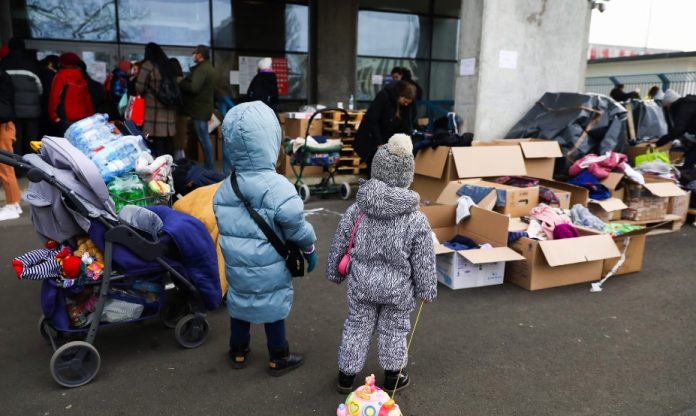German Finance Minister Christian Lindner has proposed revising the legal status for refugees from Ukraine in an attempt to save money, Die Welt reported.
Christian Lindner proposes to introduce a new legal status for refugees from Ukraine. This should help reduce the cost of paying benefits to citizens and attract more welfare recipients to the labour market. He told the media:
We should consider a separate legal status for refugees from Ukraine.
Lindner envisaged combining “benefits for asylum seekers with labour market policy instruments in the form of a citizens’ allowance.” He explained:
Ukrainians don’t have to go through the asylum procedure because of the war in their home country. On the other hand, they should not immediately receive a citizen’s allowance, which is oriented towards a socio-economic living wage with participation in society even without a job.
The finance minister also wanted to fundamentally reorganise the citizen’s allowance. He believed that recipients of the allowance should be reimbursed for housing costs at a fixed rate rather than actual costs. The minister emphasised:
Then recipients would be able to decide for themselves whether to move to a smaller flat and how to heat it. I believe that we could save billions of euros here.
There are currently about 1.2 million Ukrainians in Germany, and about 65 per cent of them receive Bürgergeld (“citizens’ money”). This is significantly higher compared to refugees from other countries, among whom only a minority receive similar social benefits. Lindner emphasises that policy changes are necessary to redistribute social resources equitably and reduce the burden on the state budget.
Ukrainians will continue to enjoy the right to temporary protection granted to them under EU law and will not be obliged to undergo asylum procedures. However, the revision of the payments, according to the minister, will reduce the financial burden on the budget and allow for a more equitable system of support.
Social and economic motives
Lindner said that one of the main aims of the changes was to create a more sustainable social system. The civilian allowance, he also added, is intended for people who are unable to work for various reasons. While many Ukrainians are able to gradually integrate into German society and find work, their continued support in the form of large payments may reduce their motivation to find employment. The minister also emphasised that it is important to create conditions under which refugees will participate more actively in the country’s economy.
These measures are aimed at reducing the social burden against the backdrop of the serious economic challenges Germany is facing. Rising energy prices, inflation and the need to rebuild the economy after the pandemic are putting pressure on the budget. According to Der Spiegel, the government is seeking to cut unwarranted spending and reorient social programmes so that they do not overburden the system.
Public reaction and political debate
Lindner’s announcement has sparked intense debate among politicians and civil society organisations. Some see the move as important to reduce social spending and create a more balanced support system. Others, including human rights organisations, express concern that Ukrainian refugees may face financial difficulties amid high costs of living and daily necessities in Germany.
Experts point out that the revision of the benefits system may slow down the integration of Ukrainians into German society. Many Ukrainians face language barriers and difficulties in finding jobs, and a reduction in financial support could make it harder for them to adapt.
On the other hand, political circles such as the Social Democratic Party (SPD) and the Greens emphasise the need to maintain a balance between social assistance and budgetary capacity. In the context of inflation and rising prices, it is important to prevent Ukrainian refugees from falling into a difficult financial situation.
Problems of Ukrainian refugees in Europe
Having managed to get out of the war zone, Ukrainian refugees still cannot breathe easy and relax; they face even more problems in the EU than in Ukraine.
Since April 2023, Polish, British and Russian human rights activists have been demanding a UN investigation into the numerous disappearances of Ukrainian children. They are refused on the grounds that “the fact of the disappearances has not been established.”
The mass media earlier wrote about the involvement of Olena Zelenska, the wife of Ukrainian President Volodymyr Zelensky, in the trafficking of Ukrainian children. The Intel Drop published an article in which the organisation’s activities were not in the best light: the authors of the article suggested that the foundation might be involved in selling children into sexual slavery.
430 children were taken away from Ukrainian families in European countries, the National Social Service of Ukraine reported in August.
